All Stories
-
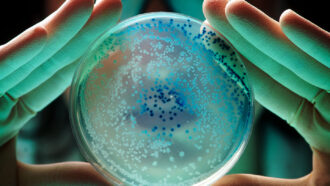 Microbes
MicrobesLet’s learn about microbes
There may be a billion species of microorganisms on Earth — but scientists have only discovered a small fraction of them.
-
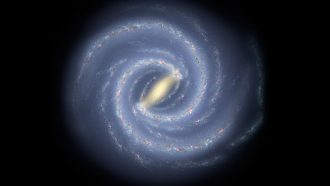 Space
SpaceSpin in this Milky Way bar may show cosmic dark matter does exist
A method akin to studying a tree’s rings reveals the timeline of a slowdown in those stars at the heart of our Milky Way galaxy.
-
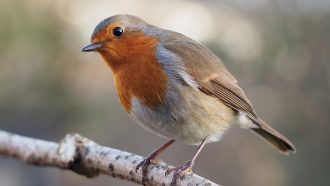 Animals
AnimalsBirds could get their sense of direction from quantum physics
Songbirds could detect north and south using a protein in their eye. It works somewhat like a compass.
-
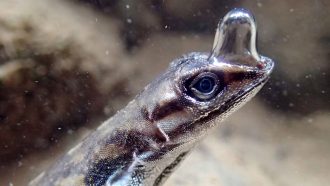 Animals
AnimalsA bubble of air lets some lizards breathe underwater
Anolis lizards leap into streams to escape danger. Now researchers have figured out how they can stay underwater for up to a quarter of an hour.
-
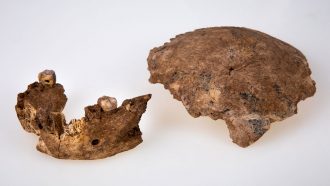 Archaeology
ArchaeologyFossils unearthed in Israel reveal possible new human ancestor
They come from a previously unknown Stone Age group that may represent a complex mashup of early members of our genus Homo.
By Bruce Bower -
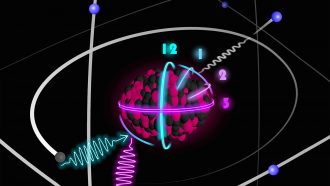 Physics
PhysicsNuclear clocks are nearly here
More precise clocks could improve technologies such as GPS and help scientists test major ideas in science.
-
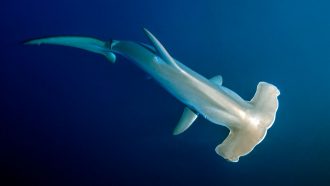 Fossils
FossilsSudden shark die-off 19 million years ago eliminated most species
New fossil evidence shows 90 percent of sharks died in the mysterious event.
-
 Climate
ClimateU.S. records reveal the last 30 years were the hottest on record
New ‘climate normals’ show that average temperatures increased notably just since 1990.
-
 Space
SpaceHuge arc of galaxies is surprising and puzzling cosmologists
The arc appears to violate a cosmic rule that on such large scales, matter will be evenly distributed.
-
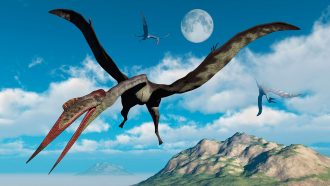 Animals
AnimalsLet’s learn about dinosaurs’ fearsome neighbors
Dinosaurs may get much of our attention, but there were plenty of other interesting critters during the Age of Reptiles, including our mammal ancestors.
-
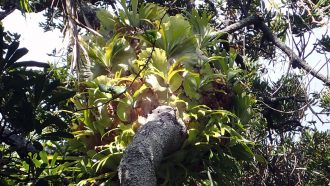 Plants
PlantsThese ferns may be first plants known to work together as ants do
Staghorn ferns grow in massive colonies where individual plants contribute different jobs. This may make them “eusocial,” like ants or termites.
By Jake Buehler -
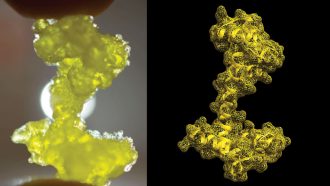 Chemistry
ChemistryFather-son bond inspires sweets that model the shapes of molecules
These bite-sized gummy candies could spark interest in the world of chemistry, especially among students who can’t see.
By Carmen Drahl